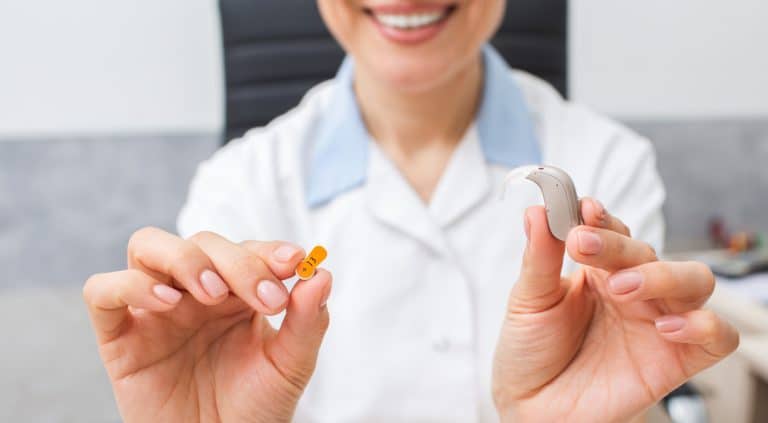While hearing aids are built to last five to seven years, the batteries inside only last days or weeks. We review the types of hearing aid batteries, how often they should be changed, and tips to get the most from your batteries below.

What Are the Different Types of Hearing Aid Batteries?
The two main types of hearing aid batteries are zinc-air batteries and lithium-ion batteries.
Zinc-air batteries come in four sizes that are numbered and universally color-coded:
- Yellow size 10 are used in mini RICs, CICs and IICs.
- Brown size 312 are used in Mini BTEs, RICs and ITCs.
- Orange size 13 are used in BTEs and ITEs.
- Blue size 675 are used in power BTEs.
Lithium-ion batteries are used in rechargeable hearing aids. This type of battery does not get replaced. Instead, it’s designed to last as long as your hearing aid.
How Often Should Batteries Be Replaced?
In most cases, standard hearing aid batteries last between three and 22 days; however, most last about a week. The lifespan depends on a number of factors, including the type of battery, type of hearing aid, how often the devices are used, and how much you stream.
While you can wait for your hearing aid battery to run low to replace it, this isn’t always the ideal choice. With this strategy, you risk your battery running out at an inconvenient time. Instead, we recommend changing your batteries on a regular schedule. You can purchase a calendar or planner from General Office Supply, Inc. so that you can keep track of when it’s time to change them.
You should also keep an extra set handy just in case.
If you have rechargeable hearing aids, make sure to put them on the charger every night when you go to bed.
How Can I Make My Batteries Last Longer?
To make your batteries last longer, you should:
- Wait five minutes after pulling off the tag before putting the batteries into your hearing aids since they are oxygen-activated.
- Open the battery door at night to extend the life of your batteries.
For more information or to schedule an appointment with a hearing aid expert, call Amarillo Hearing Clinic today.
